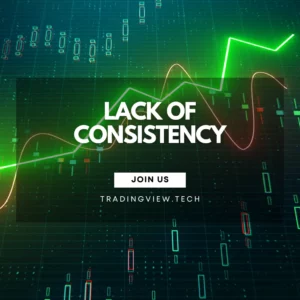Trading has long been surrounded by myths and misconceptions, often fueled by Hollywood movies, social media success stories, and aggressive marketing campaigns. Many aspiring traders enter the financial markets with unrealistic expectations, believing that trading is a shortcut to wealth, a game of luck, or an exclusive club for mathematical geniuses. These myths can be dangerous, leading to frustration, losses, and, ultimately, the abandonment of trading altogether.
The reality is far more complex. While trading offers immense opportunities, it is not a guaranteed way to make money, nor is it as simple as some make it seem. Success in trading requires knowledge, discipline, patience, and an understanding of risk. In this article, we will debunk some of the most widespread myths and uncover what truly matters in achieving sustainable success in trading.
The first and perhaps most alluring myth is that trading is an easy path to quick riches. Let’s examine why this belief is so misleading and what aspiring traders should actually focus on.
The Myth of Easy Money
One of the most pervasive myths in trading is that anyone can make a fortune overnight. Stories of traders turning small investments into millions are frequently shared online, creating the illusion that success is effortless. However, these narratives often omit the countless failures, years of experience, and financial risks that come with trading.
The Reality of Trading Profits
Trading, like any other profession, requires skill and practice. While some traders do make significant profits, these results come from a deep understanding of market behavior, strong analytical skills, and well-developed risk management strategies. For every success story, there are countless traders who have lost their capital due to poor decision-making, emotional trading, or a lack of knowledge.
Statistically, a large percentage of traders—especially beginners—fail within their first year. The reason? Many approach trading with the belief that all they need is a good strategy, a few lucky trades, or the right market conditions to make money. In reality, the markets are unpredictable, and even the most well-planned trades can go against expectations.
Why “Get Rich Quick” Doesn’t Work
Financial markets are highly competitive, with millions of participants ranging from individual traders to massive institutional investors. The idea that a newcomer with little experience can outsmart seasoned professionals is unrealistic. Successful traders rely on rigorous analysis, continuous learning, and strict discipline—traits that take years to develop.
Moreover, the psychological aspect of trading is often underestimated. The temptation to chase profits, the fear of missing out, and the emotional toll of losses can drive traders to make impulsive decisions. Many beginners fall into the trap of overtrading, using excessive leverage, or following unreliable signals—all of which lead to significant losses rather than quick riches.
The True Path to Profitability
Instead of searching for a shortcut, traders should focus on developing a long-term, sustainable approach. This means:
- Education: Learning about market structures, technical and fundamental analysis, and trading psychology.
- Risk Management: Understanding position sizing, stop-loss orders, and the importance of protecting capital.
- Patience and Discipline: Avoiding emotional decisions, following a trading plan, and accepting that losses are part of the process.
- Realistic Expectations: Aiming for steady, incremental growth rather than overnight success.
The myth of easy money has lured many into the trading world, only to leave them disillusioned. In reality, profitable trading requires effort, consistency, and resilience.
Risk and Reward – The Truth About Profits
Many traders believe that taking on greater risks automatically leads to higher rewards. While this principle is often cited in financial markets, it is widely misunderstood. The idea that reckless trading or using excessive leverage will result in massive profits is a dangerous misconception.
In reality, professional traders do not simply chase high-risk trades—they manage risk meticulously. Every successful trader understands that the key to profitability is not maximizing gains on every trade but ensuring that losses are controlled and minimized. Risk management strategies such as stop-loss orders, proper position sizing, and diversification play a crucial role in long-term success.
Leverage is often seen as a tool for amplifying gains, but it can just as easily magnify losses. Many beginners are drawn to high-leverage opportunities, believing they can turn small capital into large profits quickly. However, leverage also increases exposure to market fluctuations, making accounts more vulnerable to liquidation. Without a solid risk management plan, traders who rely on leverage often wipe out their accounts faster than they anticipate.
Another common mistake is assuming that a higher win rate equates to profitability. A trader with a 90% win rate could still lose money if their losing trades are significantly larger than their winning ones. Conversely, a trader with only a 50% win rate can be highly profitable if they cut losses quickly and let their winning trades run. This highlights the importance of a well-balanced risk-to-reward ratio rather than simply chasing frequent wins.
The truth about profits lies in consistency, not luck or taking extreme risks. The best traders focus on making calculated decisions, protecting their capital, and allowing compounding returns to work in their favor over time. Instead of focusing on high-stakes trades, a sustainable strategy prioritizes steady growth and risk mitigation.
What Actually Makes a Trader Successful?
Many people enter the trading world searching for the perfect strategy, the ultimate indicator, or a secret formula that guarantees success. However, professional traders know that success is not about finding a magical system—it is about mastering essential skills, maintaining discipline, and adapting to market conditions.
One of the most important traits of a successful trader is emotional control. Markets are unpredictable, and losses are inevitable. The ability to remain calm under pressure, avoid impulsive decisions, and stick to a well-defined plan separates profitable traders from those who fail. Emotional trading, driven by greed or fear, leads to poor risk management and unnecessary mistakes.
A trader’s mindset plays a crucial role in long-term success. Instead of focusing on short-term gains, successful traders think in probabilities and understand that no single trade defines their career. They follow a systematic approach, continuously evaluate their performance, and make adjustments based on data rather than emotions.
Another key factor is continuous learning. Financial markets are constantly evolving, and what works today may not be effective tomorrow. Successful traders stay ahead by analyzing market trends, testing new strategies, and refining their techniques. They also learn from their mistakes, keeping detailed records of their trades to identify strengths and weaknesses.
Discipline is the foundation of any profitable trading strategy. Sticking to a well-defined trading plan, managing risks effectively, and avoiding unnecessary trades require patience and self-control. Successful traders do not chase the market—they wait for the right opportunities that align with their strategy.
Ultimately, trading success is not about luck or having insider knowledge—it is about building a strong foundation of skills, developing a resilient mindset, and maintaining discipline in the face of uncertainty. Those who approach trading with a professional attitude, rather than treating it as a get-rich-quick scheme, stand the best chance of long-term profitability.



